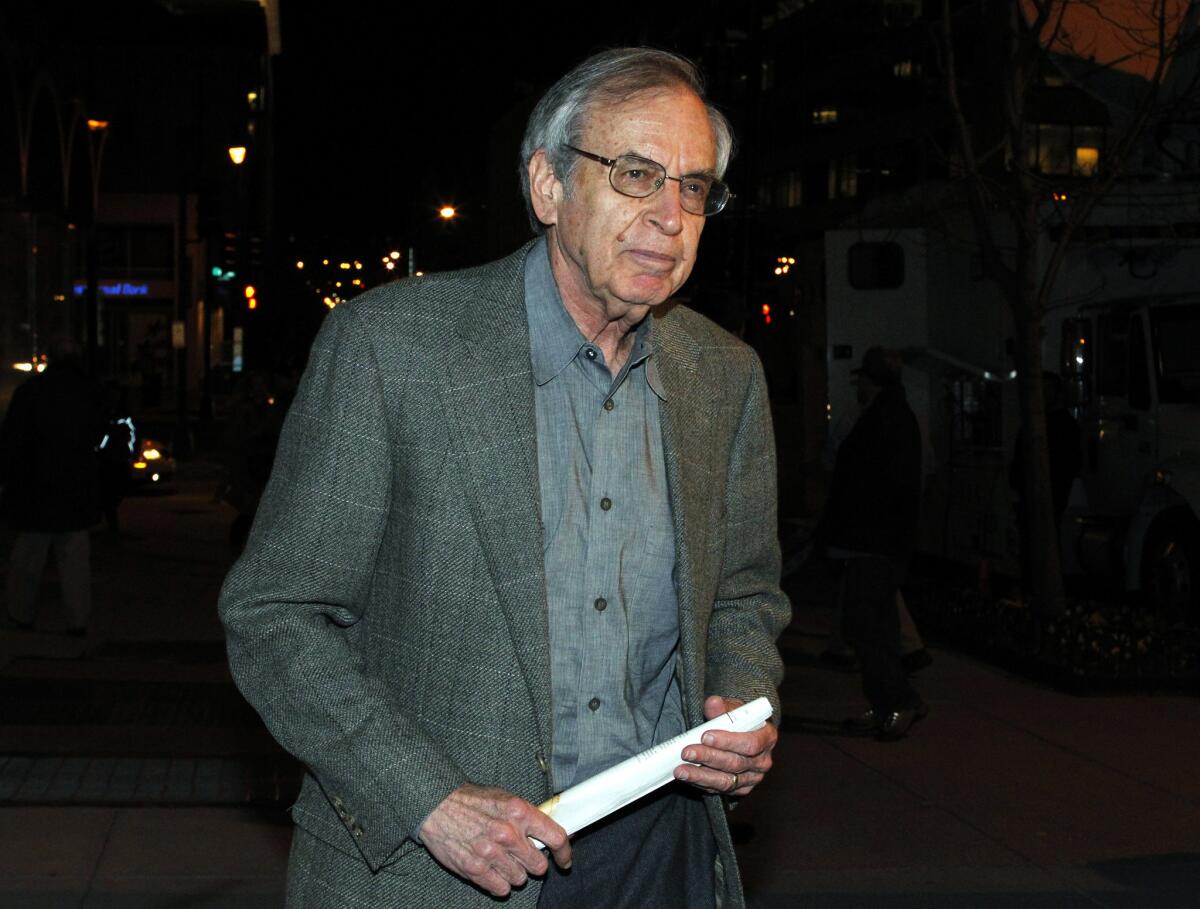BART, unions continue talks as federal mediators urge a deal

OAKLAND -- Bay Area Rapid Transit district officials and labor leaders Tuesday afternoon were again ensconced in negotiations to avert a strike – with federal mediators exerting pressure to keep talks going until a deal is done.
It remained unclear, however, whether one was forthcoming or whether trains would still be running Wednesday.
About 1 p.m. Tuesday, the teams went back into the Caltrans’ Oakland headquarters, where they have been attempting to hammer out a resolution since late last week. An 11:59 p.m. Monday strike deadline came and went after unions with just 90 minutes to go announced they had put a counteroffer into the hands of management.
Shortly after 1 a.m. George Cohen, director of the Federal Mediation & Conciliation Service and an Obama appointee, briefly emerged to say talks would continue and progress was being made.
No new strike deadline was set, and Cohen and other federal mediators who arrived in the Bay Area Sunday appear to be pressing hard for an agreement.
In an early morning statement, BART said the federal mediators “announced this morning that at their request negotiations are continuing under their auspices. In consideration, parties have agreed that in the public interest, trains will operate on a normal schedule on Tuesday.”
Amalgamated Transit Union Local 1555 – which is involved in the contract talks along with Service Employees International Union Local 1021 – told its members early Tuesday in a website posting that Cohen “has told us not to strike today.”
It is the federal mediators “belief that we are extremely close to a deal,” the posting continued. “The district was told that they cannot leave until a deal has been reached as well…We want to get the best contract for our members and will do anything possible to reach that goal.”
The unions jointly represent about 2,300 mechanics, custodians, station agents, clerical workers and train operators.
Observers had been hopeful for a deal by Sunday night to avert a shutdown of the 104-mile Bay Area commuter rail system, which logs more than 400,000 weekday rides. A four-and-a-half day strike in July dealt an economic blow to the region that was estimated by one regional business group to have cost more than $300 million.
A 60-day cooling off period requested by Gov. Jerry Brown in August ran out last week, and weary commuters have seen three strike deadlines pass since.
Unions this summer were seeking raises of more than 20% over three years, with BART management offering 8% over four years. Management also sought pension contributions from employees, who currently make none, and an increase in healthcare contributions. BART employees now pay a flat rate of $92 per month.
On Sunday, management laid down a “last best and final offer” that included a 12% raise over four years; a pension contribution that would grow from 1% the first year to 4% of salary in the fourth; and health benefit contributions that would scale up from a $132 flat rate the first year to $144 in the fourth.
If ridership increases beyond forecast levels, according to the offer shared by management, each employee could receive up to a $1,000 bonus each year.
The offer also laid out a framework on changes to “work rules,” which have proved contentious.
Union leaders were angered by what they called the “take it or leave it” offer and said that while they were “close,” they could would not take it to a vote of the members. Late Monday, SEIU Local 1021 executive director Pete Castelli said that barring a “Hail Mary,” a strike was imminent.
But the union’s counter-offer presented later in the night seemed to jump-start talks. Neither side would discuss details.
Meanwhile Alameda-Contra Costa Transit, or AC Transit, which runs buses throughout the East Bay as well as express service to San Francisco, is dealing with its own labor impasse.
About 1,630 bus operators and mechanics represented by Amalgamated Transit Union Local 192 on Monday gave a 72-hour notice that they will walk off the job early Thursday. The move came after membership twice voted down tentative contracts in recent months.
The transit district board has asked Gov. Jerry Brown to step in and seek a 60-day cooling-off period – as he did in August for BART. AC Transit carries about 181,000 daily riders, and if the two districts were to experience simultaneous strikes the effect on Bay Area residents would be significant.
In a letter to Brown, AC Transit board members argued that a strike would “significantly endanger the public’s health, safety and welfare” and said the four-and-a-half day BART strike in July “arguably provides more than sufficient evidence of the type of disruption that another Bay Area transit worker strike would entail.”
AC Transit spokesman Clarence Johnson said that as of Tuesday afternoon there had been no word on the governor’s decision.
ALSO:
L.A. County sheriff’s deputy arrested in prostitution sting
‘Rally Bear’ banned from Dodger Stadium for six months after stunt
Damaged oil derrick removed, evacuations lifted in Huntington Beach
Twitter @leeromney
lee.romney@latimes.com
More to Read
Sign up for Essential California
The most important California stories and recommendations in your inbox every morning.
You may occasionally receive promotional content from the Los Angeles Times.











